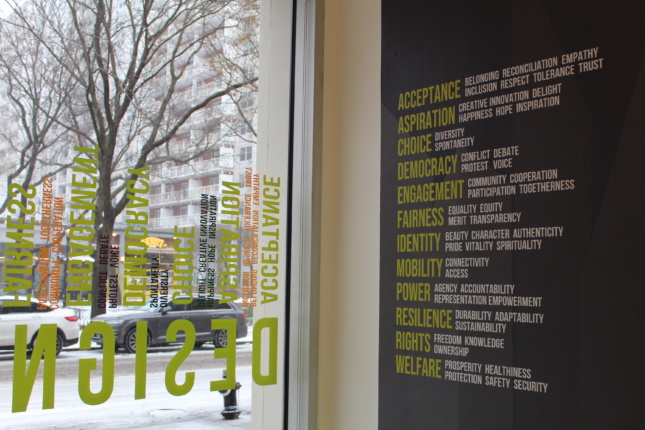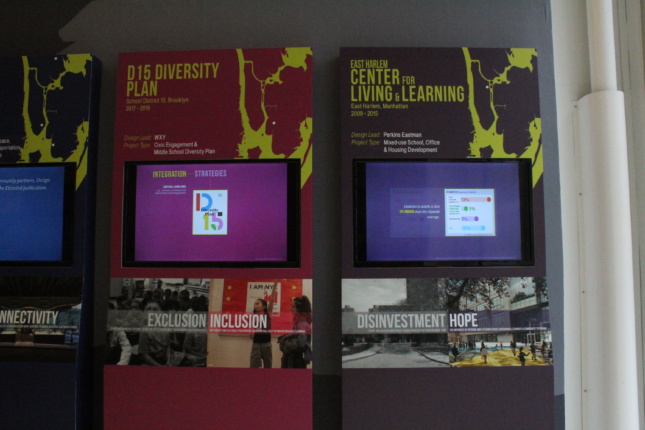From January 10 to March 30, visitors to New York’s Center for Architecture can check out an exhibition that explores how urban communities can be empowered to create more resilient and sustainable futures. Design and the Just City raises awareness about urban inequality by exploring generations of flawed policy and systematic injustices, and the psychological effects of undesirable architecture and weak urban design. The exhibition was curated by the Just City Lab of the Harvard Graduate School of Design under the leadership of its director, Professor Toni L. Griffin.

The first encounter visitors have with the exhibition is a labeled map of New York City. To the right of the map are rolls of stickers with words like “Aspiration,” “Fairness,” “Power,” “Identity,” and “Resilience.” The piece asks visitors to take a single sticker that references the most significant attribute of their neighborhood and put it on the map. From a step back, the conglomeration of multi-colored stickers could be interpreted as a pointillism piece, but the experience is meant to reveal what residents actually value about their environs.

The exhibition focuses on five videos that each look at one of the many challenges combatted by the Just City Lab. The first focuses on the uncomfortable spaces made by transportation infrastructure, particularly subway overpasses common to neighborhoods in Harlem, the Bronx, and Queens. The video shows the many ways in which landscape architecture, lighting design, and low-cost public structures can encourage these once-unsafe areas to become places where people meet or engage with wildlife.
Another project also discusses transportation, but as a remedy instead of a malady. To combat the severe racial and class-based segregation among Brooklyn‘s 15 intermediate-level schools, the video proposes free family and student transportation, community workshops to encourage a stronger integration between parents and students, easier access to information and technology, and equitable admissions. The final product is a well-produced piece describing the difficulties and challenges faced by constituents and designers, and the subsequent final designs and approaches.

Griffin founded the Just City Lab in 2011 and has established herself as one of the most influential explorers of the relationships between spatial and racial justice in urban environments. Throughout her two decades in the urban design field, she has taught at the Harvard Graduate School of Design, Department of City and Regional Planning at UC Berkeley, and the Spitzer School of Architecture at the City University of New York.











